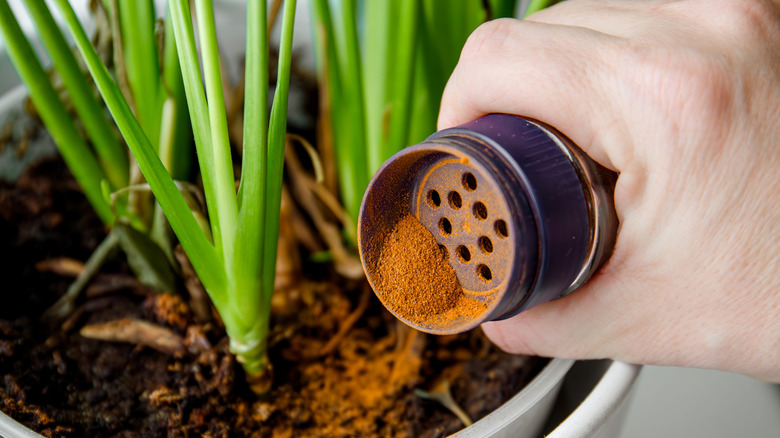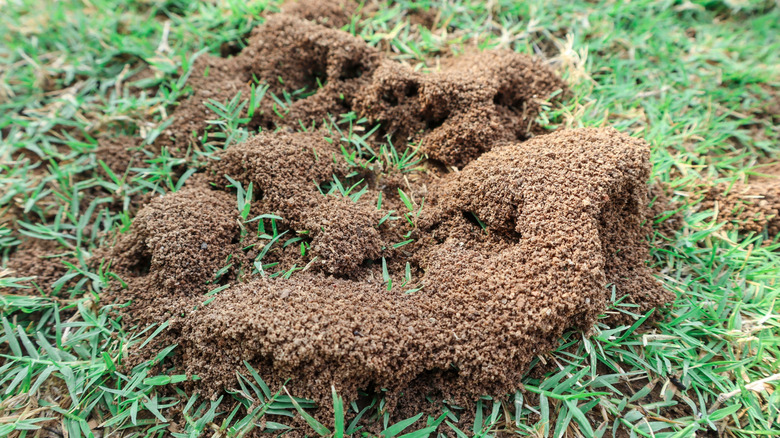Will Sprinkling Cinnamon Really Eliminate Ants & Improve Lawn Health? Here's The Deal
Healthy lawn maintenance is dependent on a lot of factors, including a mowing schedule, fertilizer, and water. There are other aspects of lawn health to consider as well, including pest control. You may have even heard of cinnamon as a non-toxic alternative to chemical insecticides to eliminate ants and also improve lawn health. While cinnamon may work to repel ants in certain circumstances, there is not a lot of evidence supporting this remedy as a dual lawn care and ant control method in your yard.
Ants are considered beneficial parts of the natural ecosystem, and they do not make home lawns unhealthy, per se. However, ants can occasionally wreak havoc on lawns because of the way they nest. They create their nests by digging tunnels underneath the grass and then moving soil on top of the turf into mounds that are better known as "ant hills." Such activities can indeed lead to some damage to your lawn, and many people understandably want to address the situation before it gets out of hand. Cinnamon is a method you might have considered to deter ants more naturally, as opposed to applying chemicals to your yard. This popular pantry staple is often touted as a way to keep ants out of your house thanks to its strong, spicy scent. Research also suggests that cinnamon has anti-fungal effects that may give it herbicidal qualities, but it's not clear whether such properties make this solution one that you can apply to your yard for overall lawn health.
Why cinnamon isn't the best way to protect your lawn from ants
Sprinkling cinnamon may help to deter ants and other pests around your home, but this method is not backed by evidence for widespread yard use. In fact, the University of Minnesota Extension lists cinnamon as one of many methods that will not kill ants outdoors. It's good to note that potential insecticidal and herbicidal benefits were found in cinnamon essential oils, and not the dried powdered formula you're used to seeing in kitchens. If you do want to try cinnamon in your yard, know that the pantry spice acts more like a repellent than a natural insecticide. You might also want to lower your expectations in this regard, as you would need to use a lot of cinnamon to protect your entire lawn from ants outdoors. Chances are, sprinkling cinnamon or using a diluted essential oil formula in a small portion of your turf might deter ants from that area only, and they may simply relocate to another part of your yard instead.
Perhaps a better solution is to address any ant nests that appear on your lawn as soon as possible. You may need to explore a variety of tricks to eliminate ant hills in your yard until you've found what works best. If ant hills keep coming back, or if the problem is more widespread, you may consider using commercial insecticides intended for lawns only. It's also important to practice good lawn care habits, such as weed control, knowing the right length to mow your lawn, and applying fertilizers when necessary.

